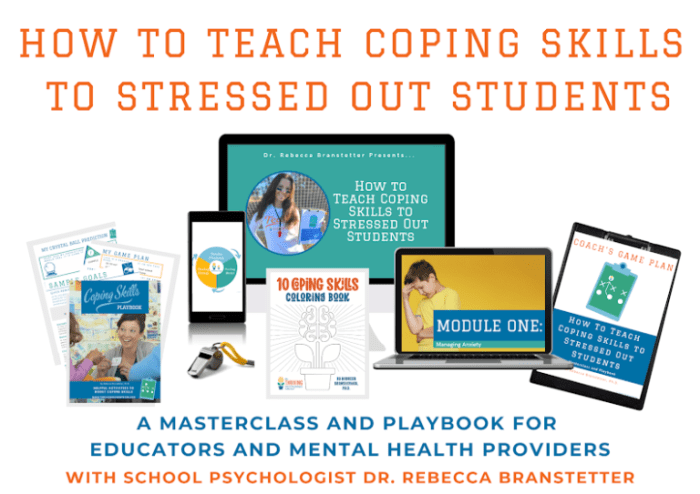In the face of life’s inevitable challenges, why do you need long-term coping skills everfi? This question lies at the heart of our exploration into the significance of developing enduring coping mechanisms. These skills are not mere temporary fixes but rather essential tools that empower individuals to navigate adversity, promote emotional well-being, and achieve personal growth.
Long-term coping skills are the foundation upon which resilience is built. They enable us to adapt to changing circumstances, manage stress effectively, and maintain a positive outlook even in the face of setbacks. By understanding the importance and benefits of these skills, we can take proactive steps towards developing them and integrating them into our daily lives.
Importance of Long-Term Coping Skills

Developing long-term coping skills is crucial for navigating life’s inevitable challenges. These skills enable individuals to manage stress, regulate emotions, and maintain well-being over extended periods. They provide a foundation for resilience, helping individuals adapt to changing circumstances and adversity.
Situations where long-term coping skills are essential include:
- Chronic illness or disability
- Relationship conflicts
- Financial hardship
- Traumatic events
- Major life transitions
Relying solely on short-term coping mechanisms, such as avoidance or emotional suppression, can have detrimental consequences. These mechanisms may provide temporary relief but ultimately perpetuate stress and impair overall functioning.
Benefits of Long-Term Coping Skills
Long-term coping skills offer numerous emotional, psychological, and physical benefits:
- Improved emotional regulation
- Increased resilience to stress
- Reduced anxiety and depression
- Enhanced self-esteem
- Improved physical health
- Greater life satisfaction
Research has demonstrated the effectiveness of long-term coping skills. For example, a study by Bonanno and colleagues (2004) found that individuals who developed positive coping skills after a traumatic event experienced reduced PTSD symptoms and improved psychological well-being over time.
Developing Effective Long-Term Coping Skills
Common long-term coping skills include:
- Problem-solving
- Emotional regulation
- Cognitive restructuring
- Mindfulness
- Social support
To develop these skills:
- Identify your coping mechanisms and areas for improvement.
- Practice the desired skills in everyday situations.
- Seek support from family, friends, or a therapist.
- Be patient and persistent, as developing new skills takes time and effort.
Challenges and Overcoming Barriers

Developing long-term coping skills can be challenging due to:
- Negative self-talk
- Fear of change
- Lack of motivation
- Limited resources or support
To overcome these barriers:
- Challenge negative thoughts and focus on positive self-talk.
- Break down goals into smaller, manageable steps.
- Seek support from others who have successfully developed coping skills.
- Remember the long-term benefits of developing these skills.
Applications in Different Contexts: Why Do You Need Long-term Coping Skills Everfi

Long-term coping skills are applicable in various life domains:
| Context | Applications |
|---|---|
| Relationships | Communicating effectively, resolving conflicts, managing expectations |
| Work | Managing stress, setting boundaries, dealing with difficult colleagues |
| Personal Growth | Overcoming challenges, pursuing goals, building self-confidence |
By applying these skills in different contexts, individuals can navigate life’s challenges, achieve their goals, and live more fulfilling lives.
Popular Questions
What are some common long-term coping skills?
Common long-term coping skills include mindfulness, problem-solving, emotional regulation, and seeking support from others.
How can I develop long-term coping skills?
Developing long-term coping skills involves practicing them regularly, seeking professional help if needed, and building a strong support system.
Why is it important to have long-term coping skills?
Long-term coping skills are essential for managing stress, promoting emotional well-being, and navigating life’s challenges effectively.